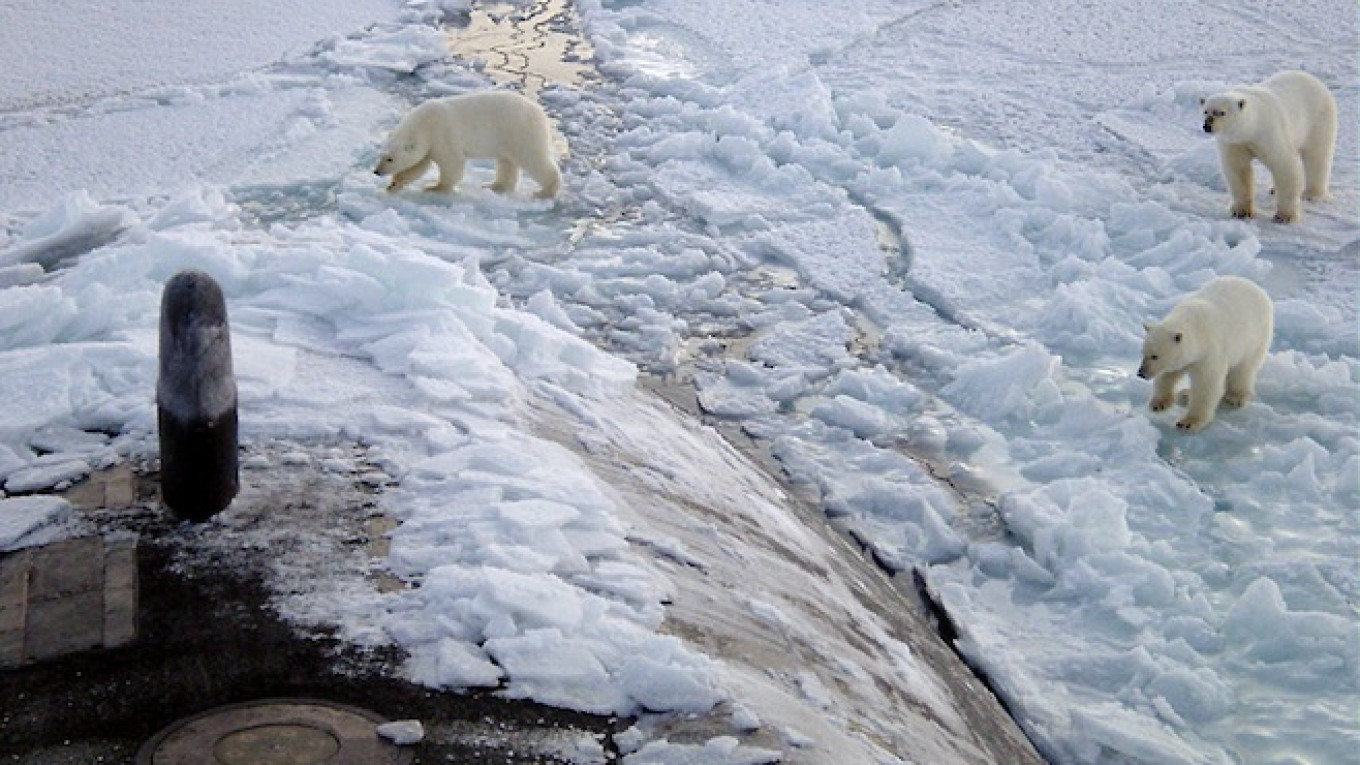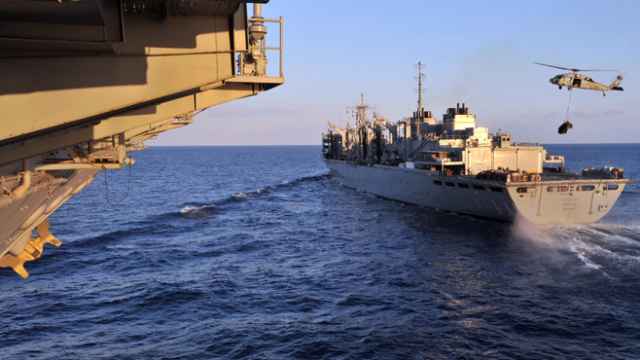Russia's plans to militarize its Arctic territories gained pace on Wednesday with the opening of a new military base on Wrangel Island, Alexander Gordeyev, a spokesperson for the Eastern Military District told the RIA Novosti news agency.
Six weeks ago, Gordeyev announced that Russia had begun laying down prefabricated modular structures on Wrangel Island and Cape Schmidt — located far into the Arctic Circle, near Alaska in the Chukchi Sea. The bases are the first in a series of military installations that will pepper Russia's northern frontier.
These defenses, which will include revitalized Soviet bases as well as new facilities built from scratch, are part of a broader plan initiated under President Vladimir Putin to lay claim to the vast natural resources locked beneath the Arctic shelf.
Russia's claims on the Arctic — and the oil, gas and rare metals tucked below — compete with the ambitions of Canada, Denmark, Norway and the U.S., leading many observers to point to the region as potentially one of the world's most volatile regions.
Wrangel Island, classified as a nature reserve, is the first of these installations to come online, RIA Novosti reported on Wednesday. However, work on a Soviet-era radar installation on the island continues.
Last week, Putin responded to environmental concerns about using the island, which one activist described as “the polar bear's maternity ward” by promising to protect the local wildlife.
The announcement of the base's opening came on the same day that the Russian military announced it would clean up the Arctic from an accumulation of debris such as discarded Soviet-era aircraft and old fuel barrels.
"The president of our country, commander-in-chief Vladimir Putin, has initiated a large-scale program on clearing the Arctic from all the heritage of past decades or, to be more precise, centuries," state news agency RIA Novosti quoted Defense Minister Sergei Shoigu as telling a meeting at his ministry Tuesday.
"The garbage is mostly discarded aircraft that were produced in the 1960s," along with "thousands of tons of old, expired oil products, tens of thousands of barrels," he said.
Shoigu said cargo ships delivering supplies to military bases on Arctic islands would carry trash on their return trips.
A Message from The Moscow Times:
Dear readers,
We are facing unprecedented challenges. Russia's Prosecutor General's Office has designated The Moscow Times as an "undesirable" organization, criminalizing our work and putting our staff at risk of prosecution. This follows our earlier unjust labeling as a "foreign agent."
These actions are direct attempts to silence independent journalism in Russia. The authorities claim our work "discredits the decisions of the Russian leadership." We see things differently: we strive to provide accurate, unbiased reporting on Russia.
We, the journalists of The Moscow Times, refuse to be silenced. But to continue our work, we need your help.
Your support, no matter how small, makes a world of difference. If you can, please support us monthly starting from just $2. It's quick to set up, and every contribution makes a significant impact.
By supporting The Moscow Times, you're defending open, independent journalism in the face of repression. Thank you for standing with us.
Remind me later.






